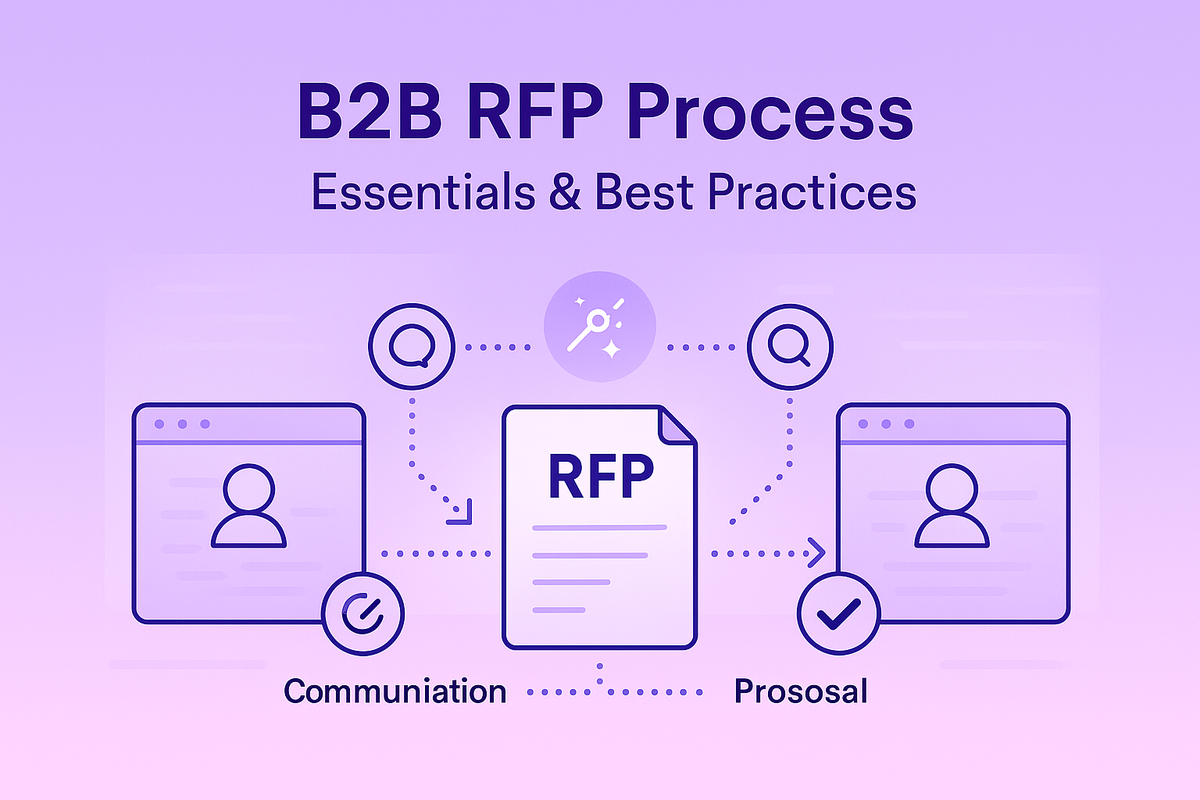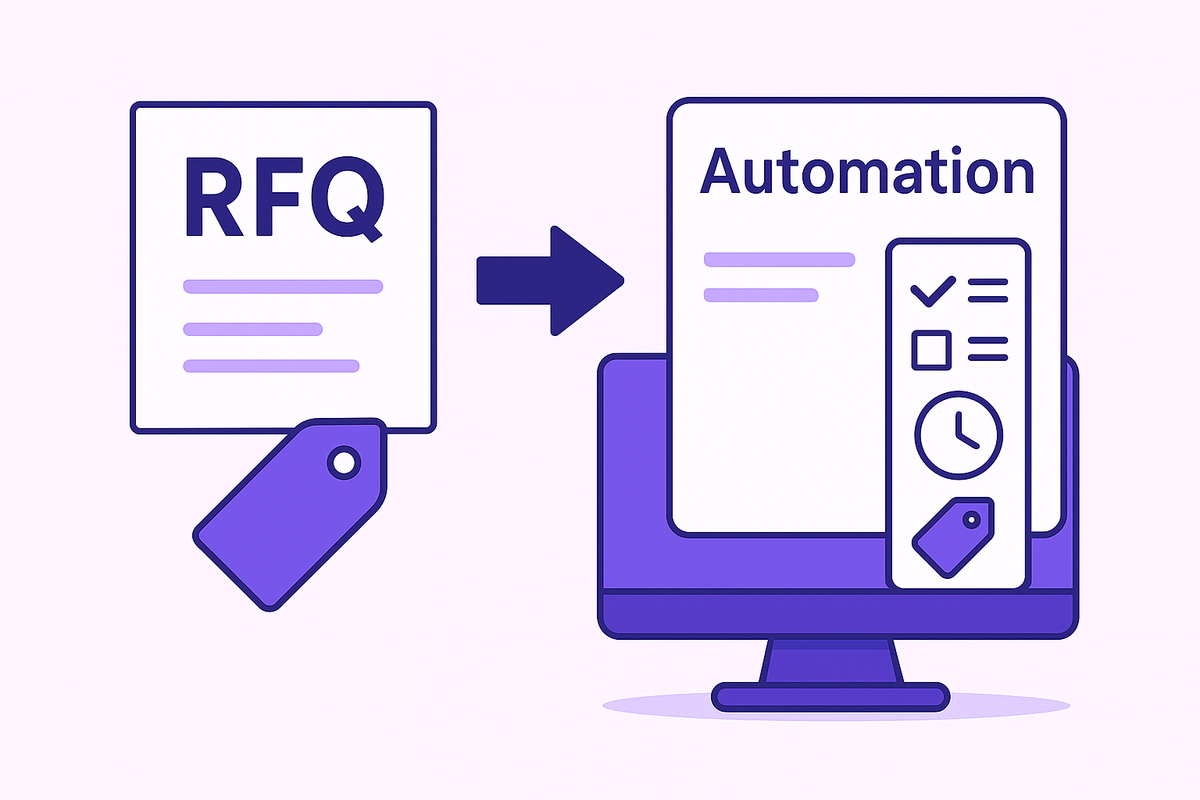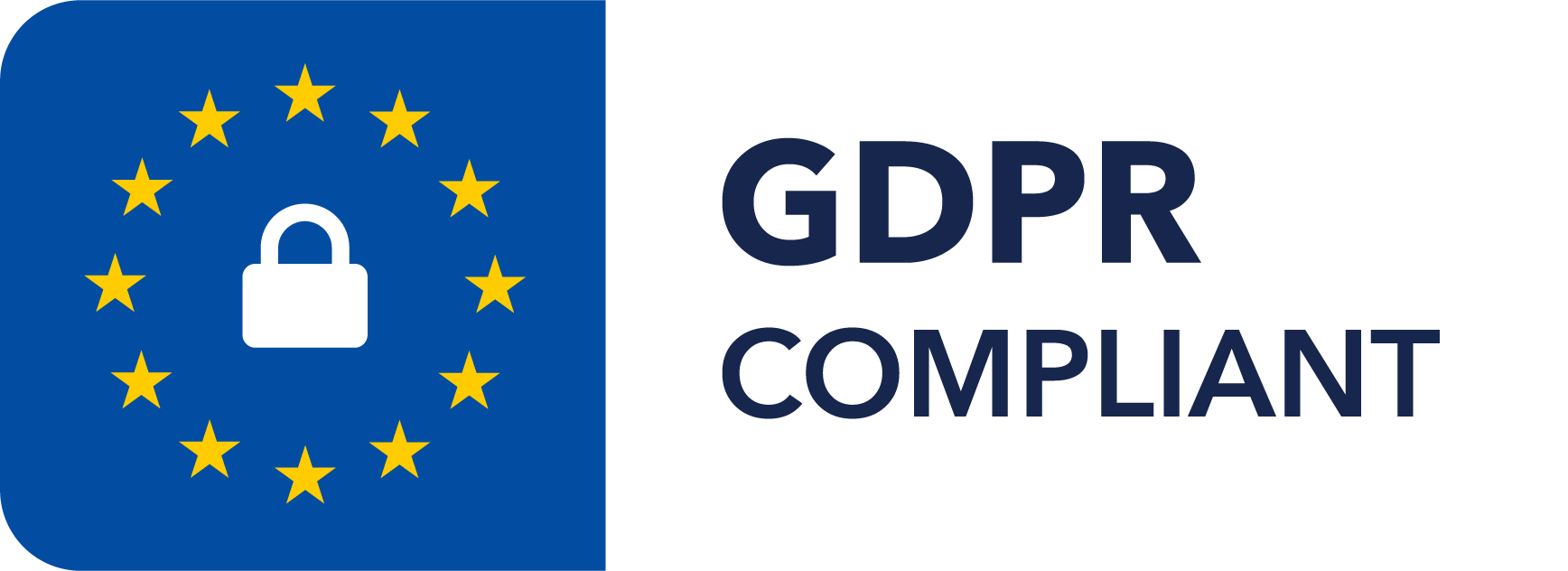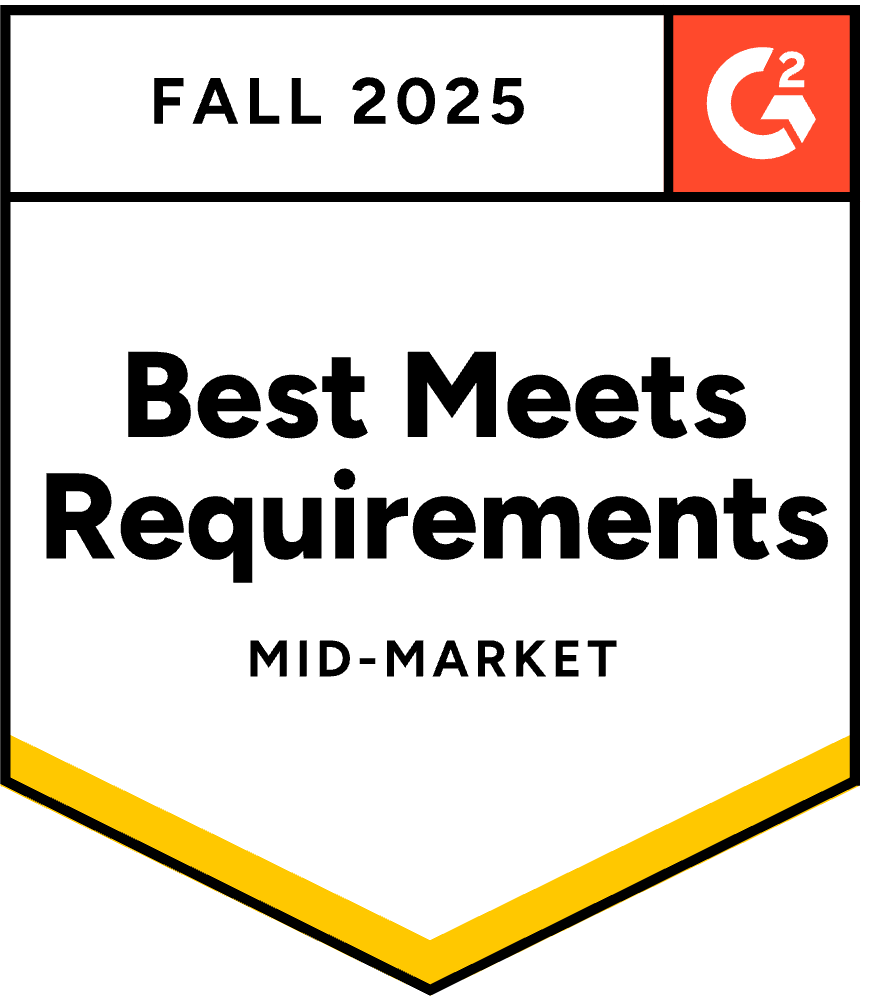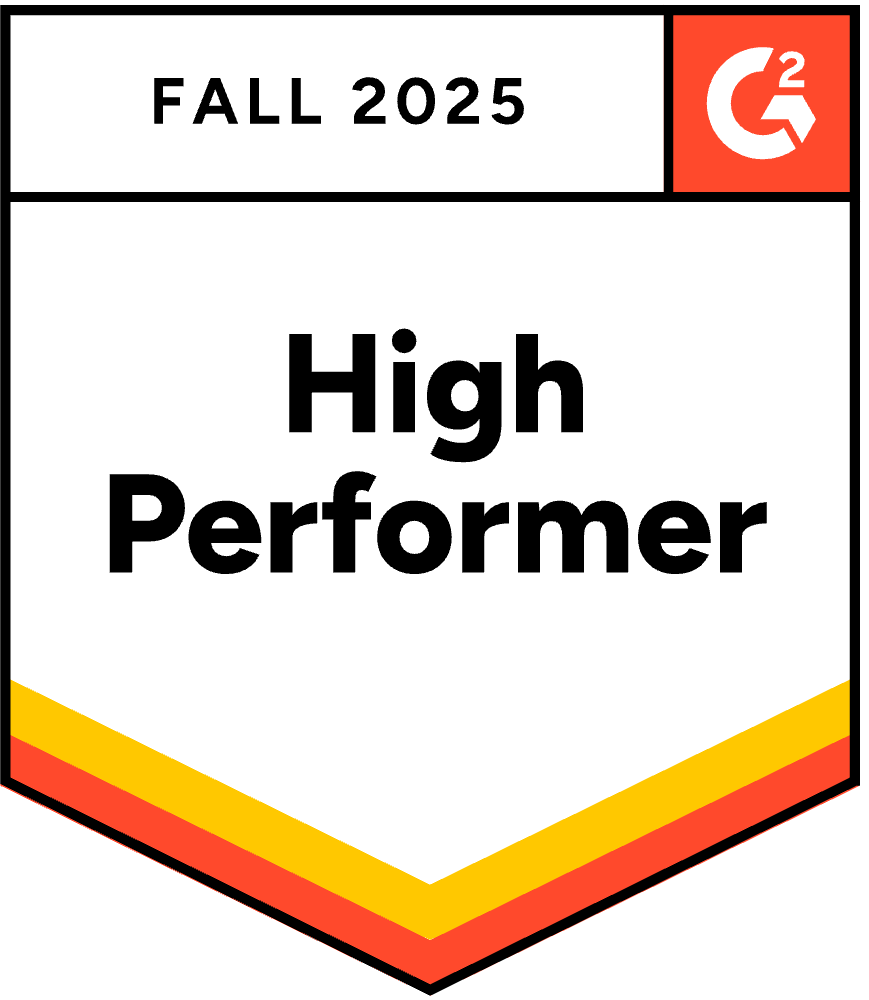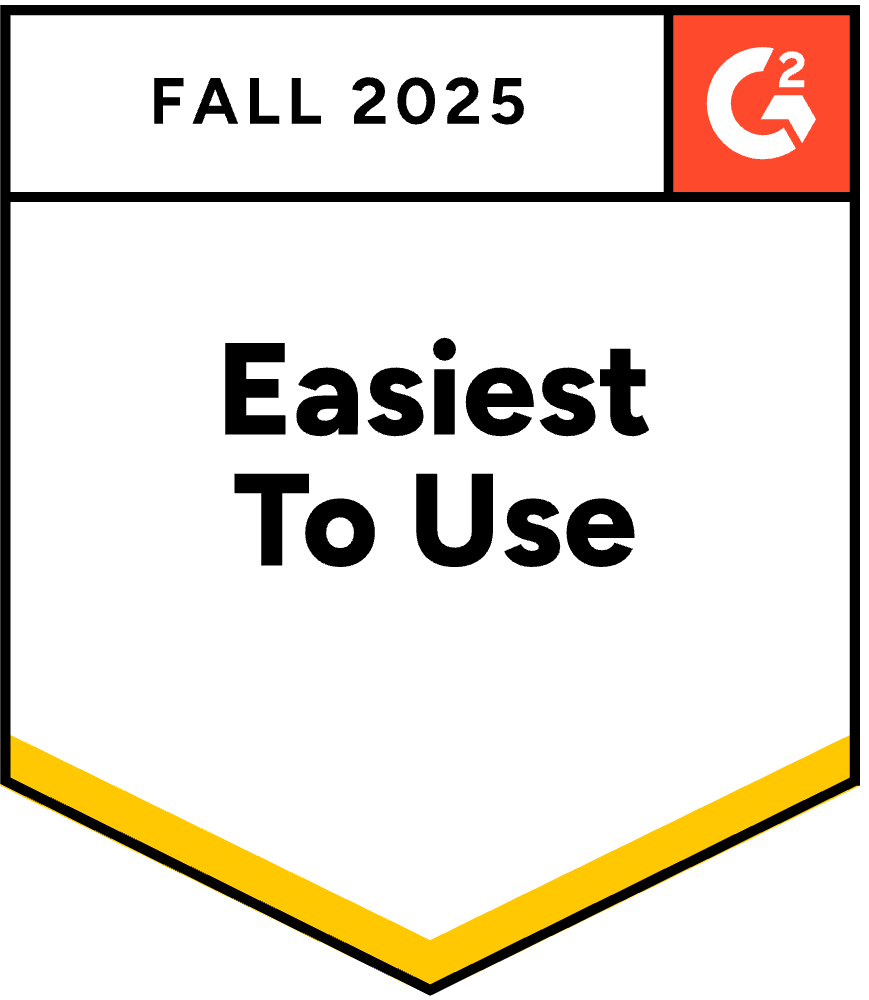Is Notion AI RFP Response Automation Enough?
February 26, 2025
By
Evie Secilmis

Your team's entire brain lives in Notion, right? Product specs, security protocols, key messaging—it's all in there. So when a high-stakes RFP or security questionnaire hits your inbox, that knowledge base should make it easy. But does it? Or are you still stuck in the copy-paste cycle, hunting for the latest answers? If you’re already using Notion as your single source of truth, there's a better way. It's time to explore how notion ai rfp response automation can turn your organized content into high-quality first drafts, saving you hours of tedious work.
Is Your RFP Process a Sales Bottleneck?
Enterprise buyers demand thorough, precise responses in RFPs and security questionnaires, but the process often drags on for weeks. One Director of Revenue Operations at a 500-person SaaS startup shared:
"We used to pull answers from old RFPs, Slack threads, and random Confluence pages. It wasn’t scalable, and it slowed down our sales cycles."
This is the reality for many companies. Sales engineers and RevOps leaders scramble to pull information from Confluence, Salesforce, Highspot, Seismic, Drata, Vanta, Slack, Notion, SharePoint, and Google Drive, often duplicating work and increasing response times. The result? Deals stall, accuracy suffers, and internal teams burn out.
Beyond RFPs: The Full Scope of Response Documents
Handling RFIs, DDQs, and Tenders
While RFPs often steal the spotlight, they're part of a much larger family of procurement documents. Your team is likely also juggling Requests for Information (RFIs), Due Diligence Questionnaires (DDQs), and formal Tenders. Each of these has its own nuances, but they all create a similar strain on your resources. Answering them requires pulling together experts from sales, security, legal, and product teams, and keeping track of every change and update is a massive challenge. This process can quickly become disorganized, creating bottlenecks that slow down the entire sales motion. Without a centralized system, you're stuck in the same cycle of hunting for information and reinventing the wheel for every new request.
How Notion AI Automates Your RFP Responses
Iris transforms the RFP response process by integrating directly with existing content repositories, eliminating the need to manually search for answers. An Enterprise Sales Engineer at a cybersecurity firm noted:
"With Iris, we can answer security questionnaires in hours instead of days. It automatically pulls the most relevant, pre-approved content from our systems—no more copy-pasting from outdated docs."
By leveraging AI-driven content retrieval, response suggestion, and workflow automation, Iris ensures teams spend less time on paperwork and more time closing deals.
Using Notion's Built-in Automation Tools
If your team is already using Notion as a knowledge base, you're sitting on a powerful tool for organizing your RFP workflow. While it’s not a dedicated response platform, Notion has some clever built-in automation features that can bring much-needed structure to your process. Think of it as building a solid foundation for managing tasks and centralizing information before you even start writing. By setting up a few key automations, you can create a more predictable and less chaotic environment for your team, ensuring everyone knows what they need to do and where to find the information they need to get it done.
Database Automations for Task Management
One of the simplest yet most effective features is Notion’s Database Automations, marked by a small lightning bolt icon in your databases. These allow you to create rules that trigger actions automatically. For example, when a sales rep adds a new RFP to your "Active RFPs" database, you can set up an automation that instantly populates the page with a standard project checklist. This could include tasks like "Assign technical lead," "Schedule kickoff meeting," and "Submit first draft for review," complete with pre-set deadlines. It’s a straightforward way to standardize your initial workflow and make sure no critical first steps are missed, all without any manual intervention.
Synced and Linked Databases for Centralized Information
Keeping information consistent is one of the biggest challenges in the RFP process. Notion helps tackle this with Synced and Linked Databases. A Synced Database lets you pull live information from other tools your team uses, like Jira or Asana, directly into a Notion page. This is perfect for tracking engineering tasks related to a security questionnaire without leaving your RFP workspace. Meanwhile, a Linked Database connects different databases within Notion itself. You could maintain a master database of approved product descriptions or security protocols and then link to specific entries in your RFP response templates. When you update the master document, the information updates everywhere, helping you maintain a single source of truth for your most critical content.
How Notion AI Fits Into Your Existing Tech Stack
Unlike legacy RFP tools that require heavy manual input, Iris syncs with the platforms sales and security teams already use, including:
- Knowledge management: Confluence, Notion, SharePoint, Google Drive
- Sales enablement: Salesforce, Highspot, Seismic
- Security compliance: Drata, Vanta
- Collaboration: Slack
This means that whether teams are searching for previous RFP answers, security compliance details, or product positioning statements, they can find, validate, and submit responses instantly—without leaving their workflow.
Key Features of a Dedicated AI RFP Solution
When you’re evaluating AI tools, it’s important to remember that not all platforms are created equal. While general AI assistants can write an email or summarize a document, they lack the specialized capabilities needed to handle the complex, high-stakes nature of RFPs. Dedicated solutions are designed with the entire response lifecycle in mind, offering features that go far beyond simple text generation. They act as a central hub for your content, a workflow engine for your team, and an intelligent partner that helps you produce higher-quality proposals in a fraction of the time. These platforms are built to understand the nuances of sales documents, from security questionnaires to statements of work.
Advanced AI for Improving Response Quality
Speed is essential, but accuracy and quality are what win deals. The best AI RFP solutions don’t just find answers; they help you refine them. Think of the AI as a writing assistant that can instantly adapt your content for any situation. This means you can move beyond a one-size-fits-all approach and tailor every response to the specific needs of the buyer. Instead of just pulling a pre-written block of text, the AI can help you perfect its delivery, ensuring your message is clear, concise, and compelling. This level of polish can be the difference between a proposal that gets skimmed and one that gets signed.
Adjusting Tone and Length
Have you ever found the perfect answer, only to realize it’s far too technical for a business stakeholder or too long for the character limit in a web portal? Advanced AI tools solve this with features that let you adjust the tone and length of any response on the fly. With a single click, you can transform a dense, jargon-filled paragraph into a concise, professional summary. This capability allows your team to maintain a consistent brand voice while tailoring the message for different audiences, all without needing to rewrite approved content from scratch. It’s about making your best content work harder for you in every scenario.
Translating and Localizing Content
In a global market, you’re likely responding to RFPs from all over the world. Manually translating technical documents is not only slow but also risky, as nuances can easily get lost. A dedicated AI solution can handle translations and localization, ensuring your responses are accurate and culturally appropriate for any region. This feature is a massive advantage for international sales teams, allowing them to compete for global deals with confidence. The AI preserves the technical integrity of the original answer while adapting it for a new audience, breaking down language barriers and expanding your market reach.
Streamlining Your Workflow from Start to Finish
An effective AI RFP tool does more than just answer questions—it streamlines your entire process. It should fit seamlessly into how your team already works, reducing friction from the moment a request comes in to the final submission. The goal is to eliminate the tedious, manual tasks that slow down your sales cycle, like searching for documents, copy-pasting answers, and chasing down subject matter experts for approvals. By automating these steps, the platform frees up your team to focus on strategy and building relationships with potential customers, which is where their expertise truly shines.
Uploading Questionnaires for Auto-completion
Imagine receiving a 200-question RFP in an Excel spreadsheet and having the first draft completed in minutes. That’s the power of auto-completion. With a platform like Iris, you can upload the entire questionnaire—whether it’s a Word document, Excel file, or PDF—and the AI will parse each question and automatically populate it with the most relevant answer from your knowledge base. This feature alone can save dozens of hours on each proposal, giving your team a massive head start and allowing them to focus on refining and personalizing the responses rather than starting from a blank page.
Integrating with Slack and Microsoft Teams
Your team lives in communication tools like Slack and Microsoft Teams, so your RFP software should meet them there. Instead of forcing everyone to learn and adopt yet another platform, modern AI solutions integrate directly into these apps. This allows sales reps to ask questions, find approved content, and collaborate with team members without ever leaving their chat window. It keeps the process moving and makes participation easy for everyone involved, from sales engineers to legal reviewers. This kind of integration is key to driving adoption and making the tool a natural part of your team’s daily routine.
Using Browser Extensions for Online Portals
More and more buyers are requiring vendors to submit proposals through clunky online portals. Manually copying and pasting hundreds of answers into individual form fields is not only mind-numbing but also prone to error. A browser extension is the perfect solution. It overlays the AI platform directly onto the portal, allowing you to access your content library and populate answers with a single click. This eliminates the need to constantly switch between windows and ensures that every field is filled with accurate, approved information, turning a frustrating task into a simple one.
Solving Team Collaboration Challenges
RFPs are rarely a solo effort. They require input from sales, product, security, legal, and other departments, and managing that collaboration can feel like herding cats. Email chains get messy, Slack channels become chaotic, and it’s hard to track who is responsible for what. A dedicated AI RFP platform brings order to this chaos by providing a centralized workspace where everyone can contribute. It creates a single source of truth for both the content and the project’s status, ensuring everyone is on the same page and working toward the same deadline.
Assigning Questions and Managing Reviews
A streamlined workflow is essential for meeting tight deadlines. The right platform allows a project lead to assign specific questions or sections to subject matter experts across the company. Team members receive notifications, can submit their answers directly in the tool, and send them back for review. This creates a clear, auditable trail of who did what and when. Features like version control and approval workflows ensure that only the most up-to-date and accurate information makes it into the final document, giving you confidence in every submission and improving your overall deal volume.
Data Security and Privacy in AI Tools
Let’s address the elephant in the room: data security. When you’re uploading your company’s most sensitive information—product roadmaps, security protocols, pricing details—into an AI platform, you need to know exactly how that data is being handled. It’s a valid concern, and one that enterprise-grade AI solutions take very seriously. Unlike consumer-facing AI tools that might use your inputs to train their models, dedicated RFP platforms are built with robust security and privacy controls from the ground up. They are designed to protect your intellectual property and ensure your confidential information stays that way.
Understanding How Your Data is Used
The most important question to ask any AI vendor is, "Is my data used for training?" For any enterprise-ready solution, the answer should be an unequivocal "no." Reputable platforms like Iris operate on a private model, meaning your company’s data is completely isolated and is never used to train the public AI or shared with other customers. Your information is used for one purpose only: to generate responses for your team. This distinction is critical, as it ensures your proprietary knowledge, customer data, and competitive advantages remain securely within your control and are never exposed to the outside world.
Data Storage and Security Certifications
Beyond data usage policies, look for concrete proof of a vendor’s commitment to security. This includes industry-standard certifications like SOC 2 and ISO 27001. These aren’t just badges; they represent rigorous, independent audits of a company’s security controls, processes, and practices. They verify that the vendor is taking the necessary steps to protect your data. Additionally, inquire about data residency—the ability to store your data in a specific geographic region (like the US or EU) to comply with regulations like GDPR. For more details on building a secure process, you can explore our whitepaper on the topic.
What Results Can You Expect from AI RFP Automation?
For revenue teams, the shift to AI-powered RFP automation is more than just convenience—it’s a strategic advantage. A VP of Solutions at a B2B SaaS company summarized:
"We cut RFP turnaround time by 60%, freeing up our team to focus on revenue-generating activities. The accuracy of responses has improved, and we’ve seen a direct impact on win rates."
Faster RFP responses. Higher accuracy. More closed deals.
Iris isn’t just automating RFPs—it’s redefining how companies approach sales enablement and security compliance.
Turning RFP Data into Strategic Insights
Winning the deal is the immediate goal, but the RFP process offers so much more than a single signature. Each questionnaire is a direct line into what your prospects value, what their security concerns are, and which features they scrutinize the most. When you use an AI platform to manage these responses, you’re not just answering questions faster—you’re building a powerful database of market intelligence. By tracking which answers contribute to winning proposals, you can start to see clear patterns, refine your messaging for future deals, and even spot potential gaps in your product offering.
This transforms the RFP from a reactive, administrative task into a proactive strategic tool. Instead of just pulling answers, you can analyze their performance. This data helps your entire revenue team understand what works, allowing you to continuously improve your sales approach and product positioning. Suddenly, that dreaded security questionnaire becomes a source of insight that informs your entire go-to-market strategy, turning a former bottleneck into a competitive advantage.
Frequently Asked Questions
We already use Notion as our knowledge base. Why can't we just use its features for our RFPs? Notion is fantastic for organizing information, and its built-in automations can definitely bring some order to your RFP task management. Think of it as a great starting point. However, a dedicated AI response platform is built specifically to handle the entire lifecycle of a proposal. It goes beyond simple organization to automatically find and suggest the best answers, adjust their tone and length for different buyers, and integrate directly with the portals and communication tools your team already uses, saving you from the endless copy-paste cycle.
How can I be sure our confidential company information is safe with an AI platform? This is a crucial question, and you're right to ask it. Enterprise-grade AI tools are designed with security as a top priority. Unlike some general AI models, your data is not used for training the public AI. Your company’s information is kept in a private, isolated environment and is only used to generate responses for your team. You should always look for platforms that hold security certifications like SOC 2 and ISO 27001, which confirm they meet strict, independently audited standards for protecting your data.
Is a dedicated AI tool only useful for RFPs, or can it handle other sales documents? While RFPs are a major focus, these platforms are designed to handle a wide range of documents that sales and security teams face. This includes Requests for Information (RFIs), Due Diligence Questionnaires (DDQs), Vendor Security Questionnaires (VSQs), and even Statements of Work (SOWs). The core function is to quickly and accurately answer questions using your approved content, which is a challenge that applies to all of these document types, not just the formal RFP.
Will the AI-generated answers sound generic or robotic? Not at all. The goal of a sophisticated AI platform isn't just to find an answer, but to help you perfect it. The best tools act as a smart writing assistant. They allow you to instantly adjust the tone of a response, making it more formal or casual as needed. You can also change the length with a single click, turning a long, technical paragraph into a concise summary for a business executive. This ensures your proposals maintain a consistent brand voice while being perfectly tailored to each specific buyer.
How does a tool like this fit in with the other software we already use, like Slack and Salesforce? A modern AI response platform should feel like a natural extension of your existing workflow, not another disconnected tool you have to manage. It integrates with the software your team relies on every day. This means you can find answers and collaborate on proposals directly within Slack or Microsoft Teams, pull information from Salesforce, and connect to knowledge bases like Confluence or SharePoint. The idea is to meet your team where they already work, making the process smoother and driving adoption across the company.
Key Takeaways
- Centralize your knowledge to stop the chaos: Your current process of hunting for answers across Slack, old proposals, and random documents is a major sales bottleneck. Establishing a single source of truth is the first step toward creating faster, more accurate responses.
- Connect your tools for true automation: While Notion can help organize your workflow, a dedicated AI platform integrates directly with the systems you already use. This allows it to automatically generate high-quality first drafts, saving your team from hours of manual copy-pasting.
- A dedicated AI platform improves both speed and quality: Enterprise-grade AI tools do more than just find answers; they help you refine the tone, translate content, and ensure your sensitive data remains secure. This transforms your RFP process from a reactive task into a strategic advantage that helps close more deals.
Related Articles
- 8 Best RFP Response Automation Software Platforms
- What Is an RFP? How to Respond with AI
- Mastering RFP Responses with AI Efficiency
- AI-Powered RFP Automation with Iris
Share this post
Link copied!



